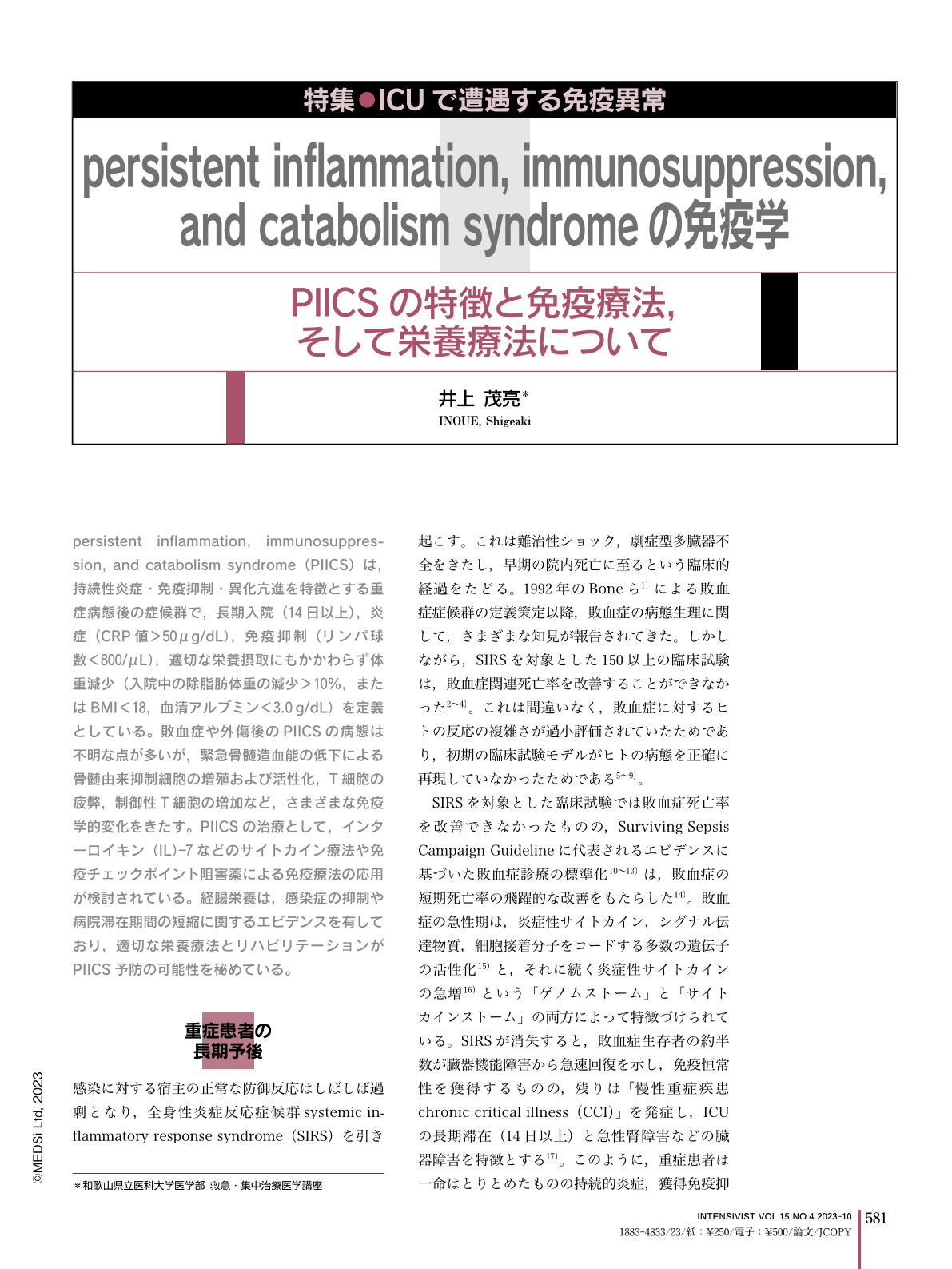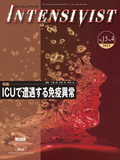Japanese
English
- 有料閲覧
- Abstract 文献概要
- 1ページ目 Look Inside
- 参考文献 Reference
persistent inflammation, immunosuppression, and catabolism syndrome(PIICS)は,持続性炎症・免疫抑制・異化亢進を特徴とする重症病態後の症候群で,長期入院(14日以上),炎症(CRP値>50μg/dL),免疫抑制(リンパ球数<800/μL),適切な栄養摂取にもかかわらず体重減少(入院中の除脂肪体重の減少>10%,またはBMI<18,血清アルブミン<3.0g/dL)を定義としている。敗血症や外傷後のPIICSの病態は不明な点が多いが,緊急骨髄造血能の低下による骨髄由来抑制細胞の増殖および活性化,T細胞の疲弊,制御性T細胞の増加など,さまざまな免疫学的変化をきたす。PIICSの治療として,インターロイキン(IL)-7などのサイトカイン療法や免疫チェックポイント阻害薬による免疫療法の応用が検討されている。経腸栄養は,感染症の抑制や病院滞在期間の短縮に関するエビデンスを有しており,適切な栄養療法とリハビリテーションがPIICS予防の可能性を秘めている。
Persistent inflammation, immunosuppression, and catabolism syndrome (PIICS) is a syndrome characterized by persistent inflammation, immunosuppression, and catabolism following severe illness. Its definition includes long-term hospitalization (>14 days), inflammation (CRP>150μg/dL), immunosuppression (lymphocyte count <800/mm3), and weight loss despite adequate nutrition intake (loss of >10% of lean body weight during hospitalization, or BMI <18 and serum albumin <3.0g/dL). There are many unknowns in the pathophysiology of PIICS following sepsis or trauma, but it is thought to bring about various immunological changes, such as the proliferation and activation of bone marrow-derived suppressor cells due to decreased emergency bone marrow hematopoiesis, T cell exhaustion, and an increase in regulatory T cells. As a treatment for PIICS, the application of cytokine therapies like IL-7 and immune therapies using checkpoint inhibitors are being considered. Enteral nutrition has been shown to help reduce infections and shorten hospital stays, suggesting that appropriate nutritional therapy and rehabilitation may hold potential in the prevention of PIICS.

Copyright © 2023, MEDICAL SCIENCES INTERNATIONAL, LTD. All rights reserved.


